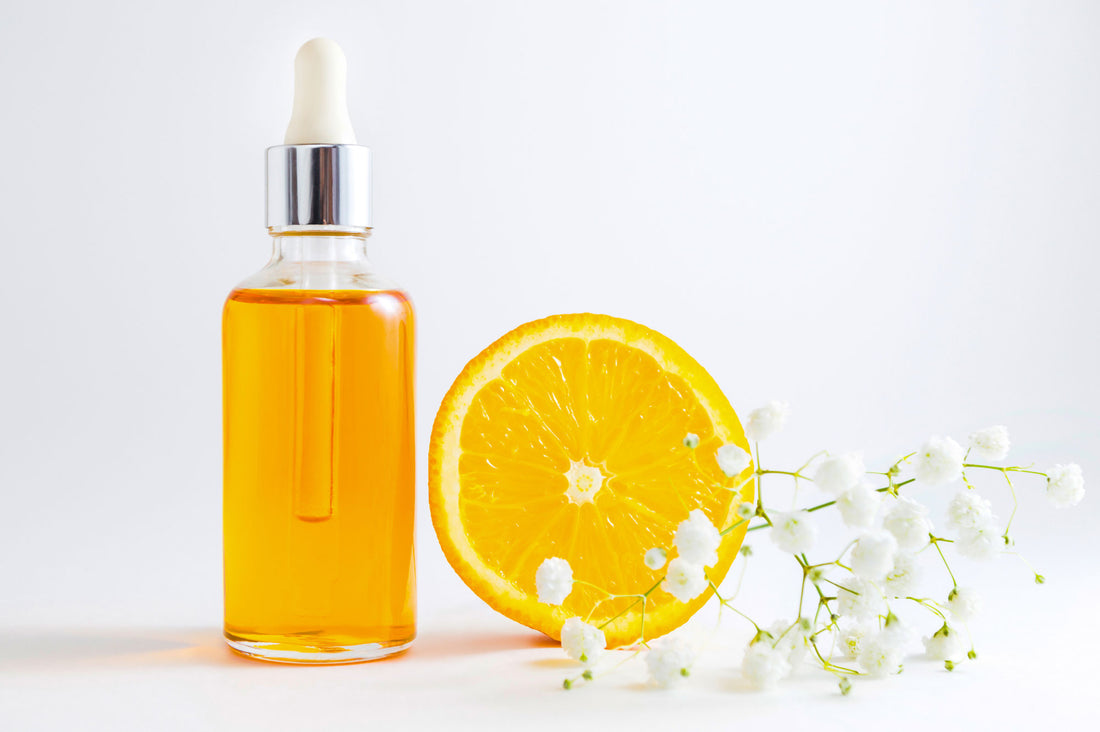Old Man Winter isn’t as nice as Old Saint Nick. Winter brings cold and flu season. That’s why so many people increase their intake of vitamin C sources in wintertime. It won’t necessarily prevent you from getting sick, but it can shorten how long you’re sick and ease the symptoms.
Winter brings more than sickness, though. It also brings cold temperatures, dry air, and blustery breezes, none of which are good for your skin. So what can you do to protect it? Again, we turn to vitamin C; only this time, we’re talking about external application, like using a vitamin C serum or face mask.
Benefits of Vitamin C for Winter Skin
As temperatures and humidity levels fall in winter, your skin pays the painful price. Take back what Old Man Winter has done to your skin in the past. Put the “win” in winter as you reap these skin benefits of vitamin C serum and its other topical products.
1. Battles Dry Skin
Cold air isn’t able to hold as much moisture as warm air can. Dry air can cause a host of potential health problems like dry skin, while the cold temperatures experienced in wintertime dry out oils in your skin, which can then lead to what’s known as winter itch. What do you do if you have an itch? You scratch it. But continued scratching can result in cracked skin.
Cracking is also a common result of really dry skin. Cracked skin isn’t just unattractive — it puts you at a greater risk of getting an infection because you don’t have a solid skin layer or moisture barrier to protect your internal systems. Vitamin C hydrates and nourishes skin, especially when this ingredient is used along with hyaluronic acid, something that can hold up to 1,000 times its weight in water.
2. Reduces Inflammation
Winter’s harsh dry air doesn’t just produce dry skin, it can also irritate sensitive and acne-prone skin. Thankfully, vitamin C is both an antioxidant and a natural anti-inflammatory skincare ingredient. When applied topically, it can reduce inflammation and pore size, as well as help soothe acne and other dry, red skin conditions.
3. Keeps Complexion Bright
We all dream of having a healthy, bright complexion, but those dreams don’t seem realistic during winter—until now. Applying a vitamin C serum or face mask or using a face cleanser made with vitamin C can help even your skin tone, giving you a more radiant complexion. Say goodbye dull skin and hello to a face that’s as fresh as that blanket of snow on your lawn.
4. Boosts Collagen Production
Collagen is currently holding your body together. No, literally, it’s the most prevalent protein in your body—found in your skin, muscles, tendons, and bones—that forms a frame of stability and structure.
Collagen is also the protein that’s chiefly responsible for giving you firmer, plumper, and more youthful-looking skin. As you get older, your body produces less collagen on its own. And as mentioned earlier, cold and dry winter air strips your skin of needed oils, which can lead to lines, wrinkles, and sagging skin on your face and neck.
Vitamin C is a key ingredient in collagen. So the more your body receives, internally and externally, the more collagen your body produces. More collagen means fewer signs of aging, and all the other vitamin C and collagen benefits.
Vitamin C isn’t the only thing your skin needs during the cold winter months. Check out these other best winter skin care tips so it’s only the birds, and not your skin, that go south this winter.

